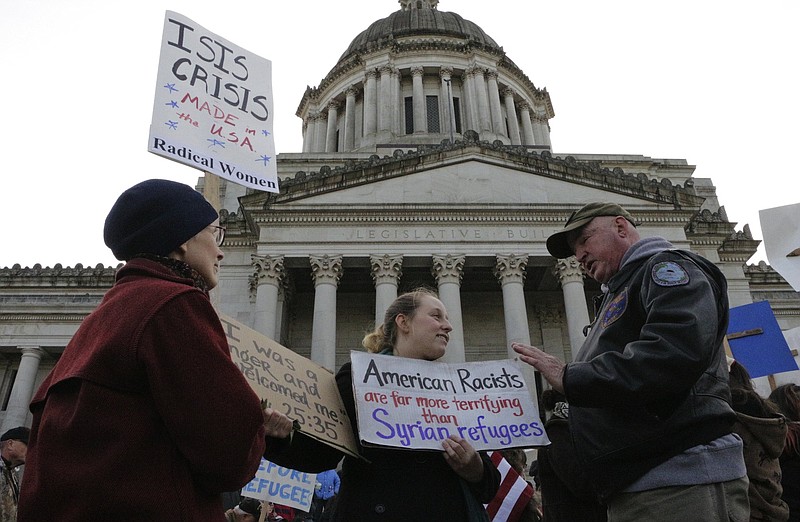Many of my social media friends are adamant that we should take in all refugees. And just as many are just as adamant that we should turn them all away.
I wish I could be so dogmatic one way or the other, but I think the issue is not so clear-cut.
Those in favor of bringing refugees in like to quote Matthew 5:44, "Love your enemies." But surely this command is intended for personal ethics, not to dictate governmental foreign policy. Perhaps more applicable passages would be Romans 13:1-7, whose first verse says: "Let everyone be subject to the governing authorities, for there is no authority except that which God has established. The authorities that exist have been established by God." Or 1 Peter 2:13-17, whose first verse says: "Submit yourselves for the Lord's sake to every human authority: whether to the emperor, as the supreme authority."
The state has the power of the sword, and the obligation to protect its citizens with that sword. I cannot find a specific verse that clearly commands our nation to take in refugees, nor one to justify turning them away. So, absent specific biblical instruction, we must approach this thorny issue from principles of logic, relying more on reason than emotion.
And the starting point for that is to state what we know.
We know that radical Muslims intent on causing terror have indeed infiltrated the ranks of the refugees. Those who oppose open immigration are not opposing Muslims as such, but rather, the real presence of terrorists in their midst.
We also know that terror groups are purposely targeting Christians, Yazidis and other religious groups. This fact is the only point of equivalency with the Jews persecuted during World War II. We do have an obligation to protect these persecuted innocents; to our shame we failed in this obligation 70 years ago.
We should also know that, in war, we seldom have the luxury of the choice between good and bad. More often than not, the choices are limited to bad, worse and worst. Such is the case here. There really is no good solution. All we are left with is a gradation of bad choices.
It seems to me that the worst of the choices would be to throw our doors open and invite anyone to come in. There is nothing virtuous, Christian or compassionate about acting in ignorance and putting innocent people here at risk.
It also seems to me that the second-worst choice would be to close our doors completely without trying to protect those we can. Is it possible for us to take in Christians and other persecuted groups?
Perhaps a less-bad scenario would be to take in women and children, but not males over the age of 15. Is that doable?
Some have suggested the creation of "safe zones" within Syria. That may be even better among the bad choices. But ISIS is not going to respect those zones. We would still have to have military personnel there to enforce the zones, putting our soldiers at risk.
May I propose that the least-bad choice is to pressure other Middle Eastern countries to take in refugees. To my knowledge, Saudi Arabia has not welcomed any. Why not? They have plenty of room and resources. This would enable displaced people to stay closer to their homes and in a culture much more similar to their own.
Finally, we know that people will disagree vehemently with each of those bad possibilities. Can we discuss our disagreements without insult and invective? Can we talk about these things in a calm and reasoned manner? That seems the civilized - even biblical - thing to do.
May God help us to do, if not the right thing, then the least-wrong thing.
Phil Evaul is the pastor of Sale Creek Independent Presbyterian Church.

